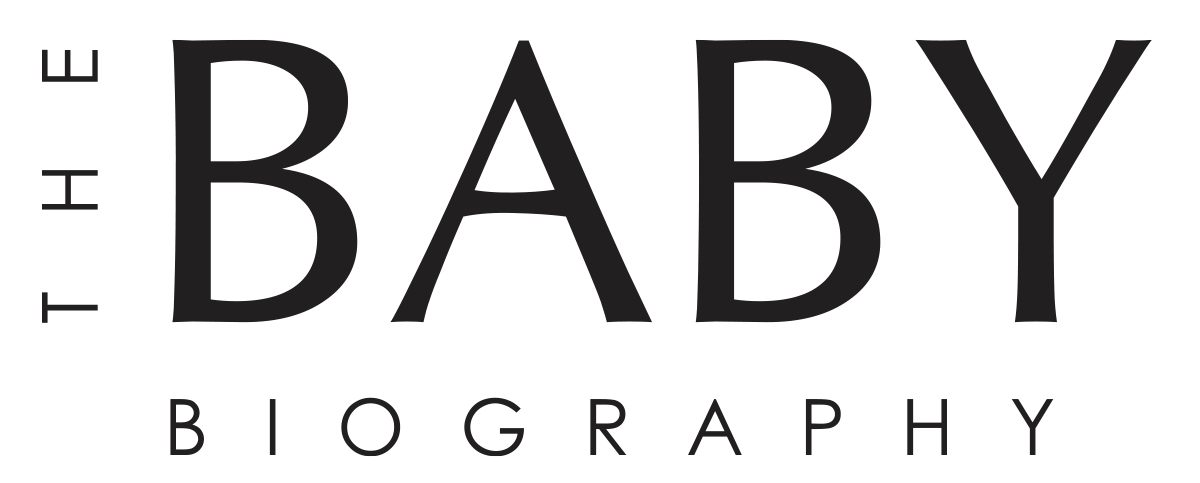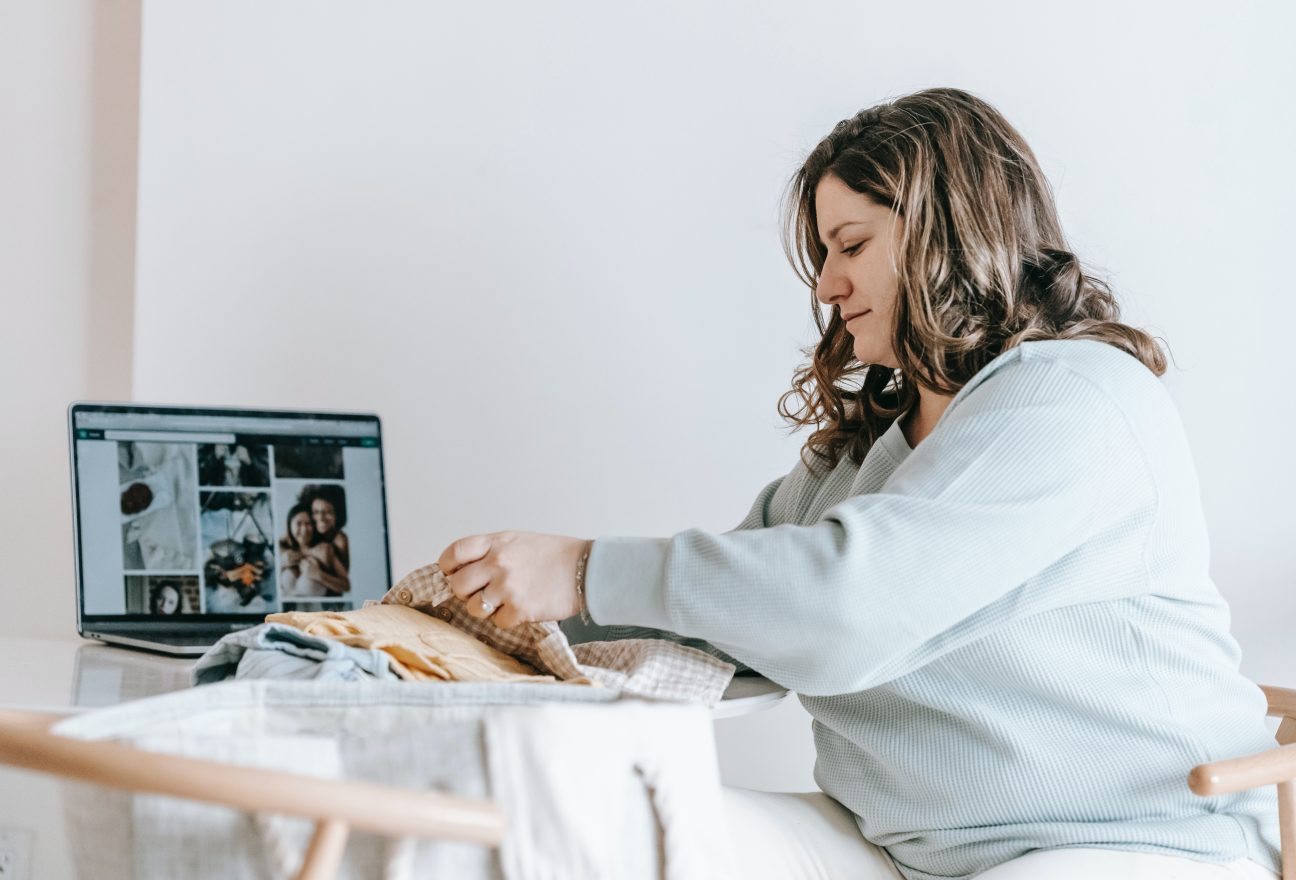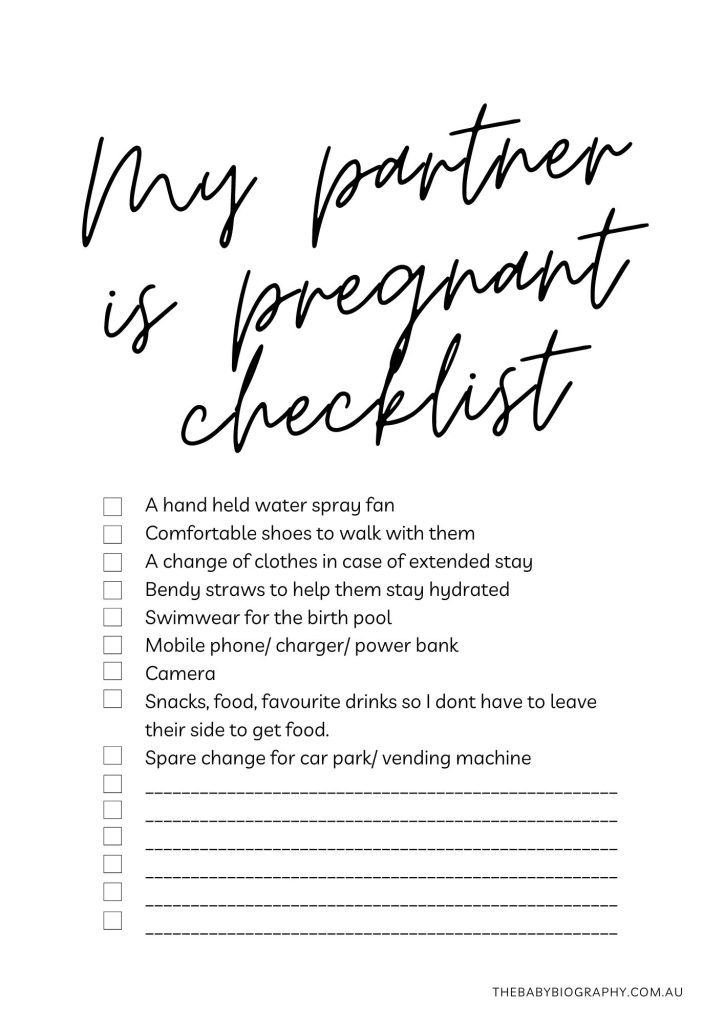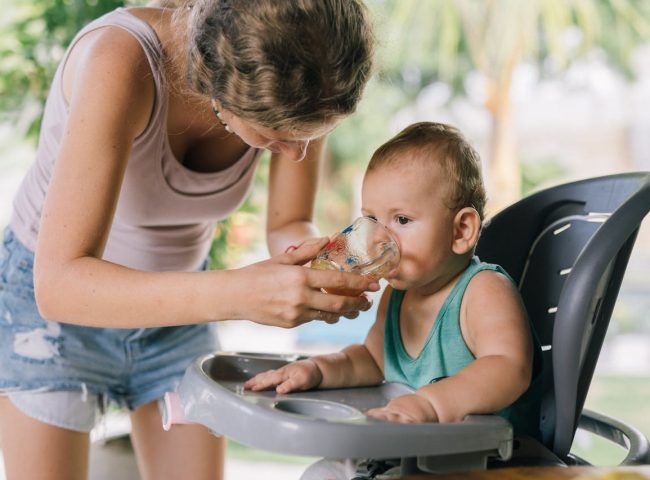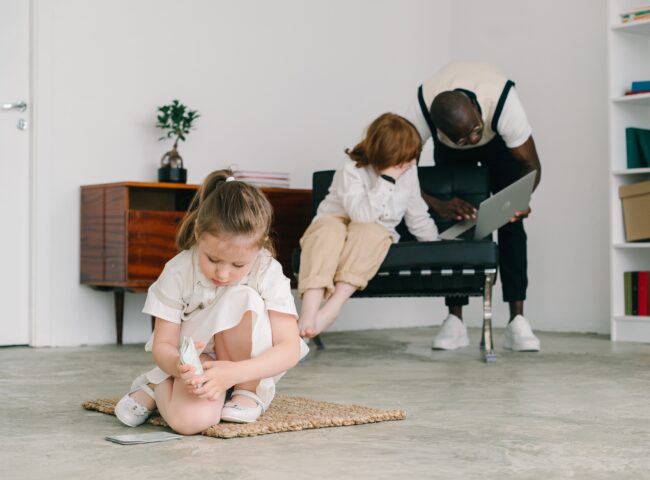Read till the end for a summarized checklist!
Even if you’re 36 weeks pregnant, and not planning to birth your baby in a hospital, you might need a hospital bag. We’ll tell you exactly why. Start gathering all the essentials you’ll need during labor, birth, and after your baby is born, as it’s never too early. It’s advisable to have a bag ready by the time you’re about 36 weeks pregnant, even if you’re not planning to give birth in a hospital or birth center, as you may need to go in unexpectedly. So here is our free hospital bag checklist.
Pregnancy is a beautiful and mysterious process. You are quite literally growing another living, breathing little human. There’s a lot of science and molecular processes that happen in this period within your body and the growing embryo. That is why you need to take the best possible care with your pregnancy. You may need to go in to the hospital a couple of times during your pregnancy, and it’s always better to stay prepared.
Here are a few of our tips to packing your hospital bag during pregnancy.
Pack personal items
It’s recommended to bring some personal items from home, like your own pillows, to make the environment more familiar when you’re in the hospital or birth center. However, each facility has its own rules about what you’re allowed to bring, so it’s important to check beforehand. It’s also advisable to leave valuables such as jewelry and large amounts of cash at home.
Have two separate bags
Consider packing two separate bags for your hospital stay: one for the labor + immediate postpartum period, and another for your stay on the postnatal ward.
If you’re driving to the hospital or birth center, it may be convenient to leave the second bag in the car. In the event of a straightforward birth, you may even be discharged on the same day and not require the second bag at all.
Things to pack for labour and delivery
To prepare for labor, make sure to pack a few essential items:
- Your Medicare card, health insurance details (if applicable), and any hospital paperwork you may need.
- Your birth plan and maternity notes or antenatal card (if you were given one).
- An old nightdress or loose-fitting t-shirt to wear during labor. Choose something comfortable that you don’t mind getting messy.
- A lightweight dressing gown, preferably in a dark or busy pattern to hide any stains. This will be useful if you need to walk around the hospital during early labor or on the postnatal ward.
- Backless slippers or thongs slippers that are easy to slip on and off.
- Socks to keep your feet warm during labor.
- Massage oil or lotion, as well as a massage roller or similar tool if you would like your birth partner to massage you.
- A birth ball, if the hospital does not provide one in your size. Make sure to bring a pump to inflate it.
- Snacks and drinks to keep your energy levels up during and after labor. Choose slow-release, carb-packed snacks like fruit, nuts, chips, muesli bars, honey sandwiches or straws, and popcorn. Coconut water and isotonic sports drinks are also great for a quick energy boost.
- Things to help you relax or pass the time, such as books, magazines, games, knitting, or a tablet with fun and distracting apps.
- Lip balm to prevent dry lips from using gas and air.
- Glasses or contact lenses, if applicable.
- Hairbands, clips, or a headband to keep your hair out of your face.
- Pillows to make you more comfortable during labor and while breastfeeding.
- Heat packs, if your hospital allows them and has a microwave available for your birth partner to heat them up.
- Toiletries and tissues to freshen up during labor.
- A playlist of upbeat and calming music to help distract and inspire you.
- An oil burner, if your hospital allows the use of aromatherapy oils.
Remember to also check with your hospital or birth center about their policies on what you can bring with you.
Things to pack for postnatal period
To prepare for your recovery after giving birth, consider packing the following items:
- A loose, comfortable going-home outfit. Your body will still be adjusting after the birth, so stick with maternity clothes for now.
- Handouts or contact information about breastfeeding support, if you plan to breastfeed. Bring nursing bras, breast pads, nipple cream, and maternity pads as well.
- A nightshirt or front-opening shirt for easy breastfeeding access. Pack toiletries, including unscented versions to help your baby get used to your natural scent, and bring old or disposable underwear.
- Arnica cream, which some women find helpful for reducing bruising and promoting healing. Check with your midwife before using it and get their advice regarding arnica tablets before you orally take them.
- An eye mask and ear plugs to help you rest in a bright and noisy postnatal ward.
- A notepad or journal to track your baby’s feedings, write down questions, and record memories of your baby’s first few days.
Things to pack for your baby
To prepare for your baby’s arrival, make sure to pack these essential items:
- Two or three sleepsuits and vests for your newborn to wear during your hospital stay. Pack extra if you’ll be there for more than a few days.
- Socks or booties, mittens, and a hat to keep your baby’s head and feet warm.
- An outfit for your baby to wear on the trip home. A one-piece stretchy outfit is the easiest to dress your baby in.
- A baby blanket in case it’s chilly outside when you leave the hospital.
- Disposable or reusable nappies. Your baby may use up to 12 nappies per day, so bring enough for your stay.
- Cotton wool or wipes for cleaning your baby’s delicate skin during nappy changes. If you choose wipes, opt for fragrance-free and alcohol-free ones.
- Muslin squares or burp cloths for cleaning up any spit-up or spills.
- An infant car seat, which is required to leave the hospital by car. Make sure you practice using and installing the seat beforehand.
- A jacket or cardigan to keep your baby warm on the trip home.
By packing these essentials, you’ll be well-prepared for your baby’s first few days and the journey home.
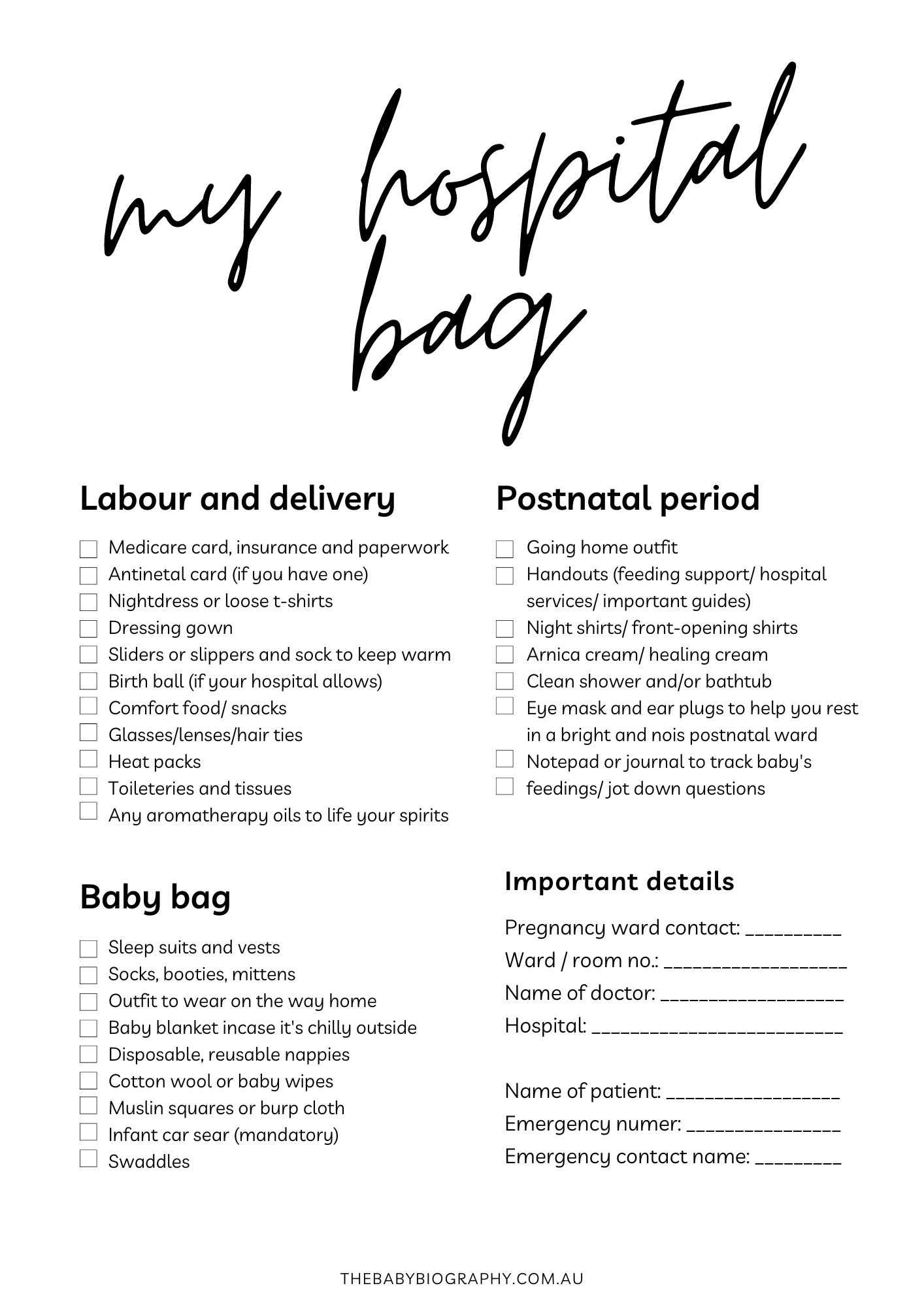 Baby bag checklist for pregnancy- download here
Baby bag checklist for pregnancy- download here
Things to take for my partner who is giving birth
If you have a birth partner, they can bring a few items to help make your labour and hospital stay more comfortable. Here are some suggestions.
- A water spray or hand-held fan to keep them cool during labour.
- Comfortable shoes, as they may need to walk around with you.
- A change of clothes, as you may not get the chance to shower for a while.
- Bendy straws to help them drink during labour. If they’re reusable, make sure to take them with you when you leave the delivery suite.
- Swimwear, if they want to join you in the shower or birth pool (check with the hospital first).
- Mobile phone and charger, so they can use apps to time your contractions and take photos of your baby.
- A digital camera or camcorder, if you want professional-quality photos or video of the birth and early moments with your baby (check with the hospital first).
- An address book or list of phone numbers, so you can announce your baby’s arrival to loved ones when you’re ready.
- Snacks and drinks, so you can stay with them rather than leaving to find food.
- Spare change for the car park or vending machines.
Baby bag checklist for partners- download here
Additional ways to prepare for your baby’s birth
Here are some additional ways to prepare for your baby’s birth:
Attend antenatal classes. These classes provide you with essential information on childbirth, breastfeeding, and newborn care. They can also help you connect with other parents-to-be in your community.
Choose a pediatrician. Start looking for a pediatrician early on in your pregnancy, so you have plenty of time to find the right one. You’ll want to choose someone who you feel comfortable with and who shares your parenting philosophy.
Prepare for breastfeeding. If you plan to breastfeed, educate yourself on the basics of breastfeeding and the benefits it provides for both you and your baby. You can attend breastfeeding classes, read books or articles, and seek advice from other mothers or a lactation consultant.
Create a birth plan. A birth plan outlines your preferences for labor and delivery, including pain relief options, medical interventions, and who you want to be present during the birth. Discuss your birth plan with your healthcare provider to ensure that your wishes can be accommodated.
Pack your hospital bag early. As mentioned before, it’s important to have your hospital bag packed and ready to go in advance. This will ensure that you have everything you need for yourself and your baby, and that you’re not scrambling at the last minute.
Set up your baby’s nursery. You don’t need to have a fully furnished nursery before your baby arrives, but it’s a good idea to have the essentials in place, such as a crib, changing table, and storage for baby clothes and supplies.
Stock up on baby supplies. You’ll need plenty of diapers, wipes, and other baby essentials in the first few weeks after your baby is born. Stock up on these items in advance so that you’re not running out to the store every other day.
Take care of yourself. It’s important to prioritize your own physical and emotional well-being during pregnancy and after childbirth. This includes getting enough rest, eating a healthy diet, staying active, and seeking support from friends, family, or a therapist if needed.
Want to see more relatable content like this?
Subscribe to us for only the good stuff, and no marketing. Our newsletter cuts to the chase!
